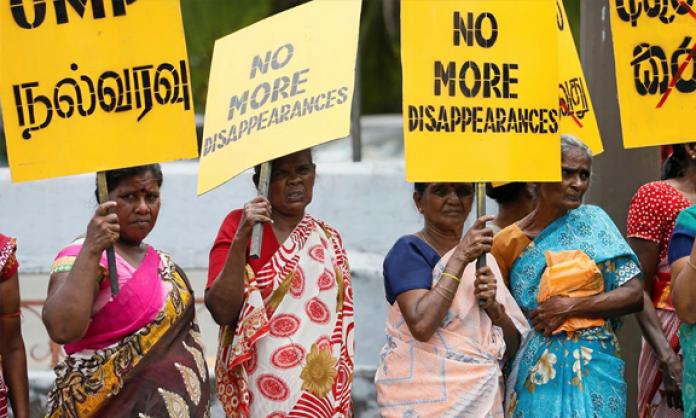The United Nations has documented widespread torture in Sri Lanka. But the Australian government continues to deport asylum seekers to danger.
UN special rapporteur Ben Emmerson’s latest human rights report, released on 23 July after he visited the country last year, concludes:
“Impunity is still the rule for those responsible for the routine and systemic use of torture, and countless individuals are the victims of gross miscarriages of justice … The Tamil community remains stigmatised and disenfranchised, while the trust of other minority communities is being steadily eroded.”
The Tamils are an ethnic majority in the north and east of Sri Lanka. For decades they have been oppressed by governments representing the more numerous Sinhalese population of the south.
Hundreds of thousands have fled the country since the early 1980s. Tens of thousands have been murdered, tortured or raped by the island’s military and security forces.
Encouraged by the 2009 military victory over the Liberation Tigers of Tamil Eelam – an organisation that fought for an independent Tamil homeland – sections of the security forces continue to harass, intimidate and torture with impunity those they deem disloyal to the Sri Lankan state or hostile to Sinhalese political and cultural domination.
During his visit, Emmerson heard “distressing testimonies of very brutal and cruel methods of torture, including beatings with sticks, the use of stress positions, asphyxiation using plastic bags drenched in kerosene, pulling out of fingernails, insertion of needles beneath the fingernails, use of various forms of water torture, suspension of individuals for several hours by their thumbs, and mutilation of genitals”.
The report’s release came a week after a 30-year-old Tamil asylum seeker, Thileepan, was separated from his wife Karthika and infant daughter Najomi, and deported to Sri Lanka by the Australian government.
Before fleeing in 2012, Thileepan had been tortured by the Sri Lankan security forces during an interrogation over his alleged association with the Tigers. He says that he was kicked, beaten with a coconut tree branch and had pins jammed into his fingernails.
The United Nations Human Rights Committee on 17 July requested that the government not deport Thileepan. But he’d already been removed. Friends of the family have set up a fundraising page to help Karthika and Najomi make ends meet now that their family has been forcibly separated (gofundme.com/support-for-karthika).
“We tried, but we couldn’t stop Theelipan’s deportation”, Aran Mylvaganam, Tamil Refugee Council spokesperson, said on Tuesday.
“The government has made it clear that he will not be the last. We will continue to pursue every legal avenue available to keep Tamil asylum seekers here. But the laws are stacked against us.”
Despite the clear evidence of widespread abuse in Sri Lanka, the number of Tamil deportations appears to be increasing. The Tamil Refugee Council is calling for an end to Tamil deportations and for protection visas for all Tamil asylum seekers.
But the Australian immigration system is vicious, and the government is wilfully blind to the situation in Sri Lanka. It’s going to take direct action to stall deportations. Ultimately, the laws must be changed to ensure that those in need of asylum are granted it.
----------
To stay up to date with any actions, follow the Tamil Refugee Council on Facebook, www.facebook.com/tamilrefugeecounciloz.








